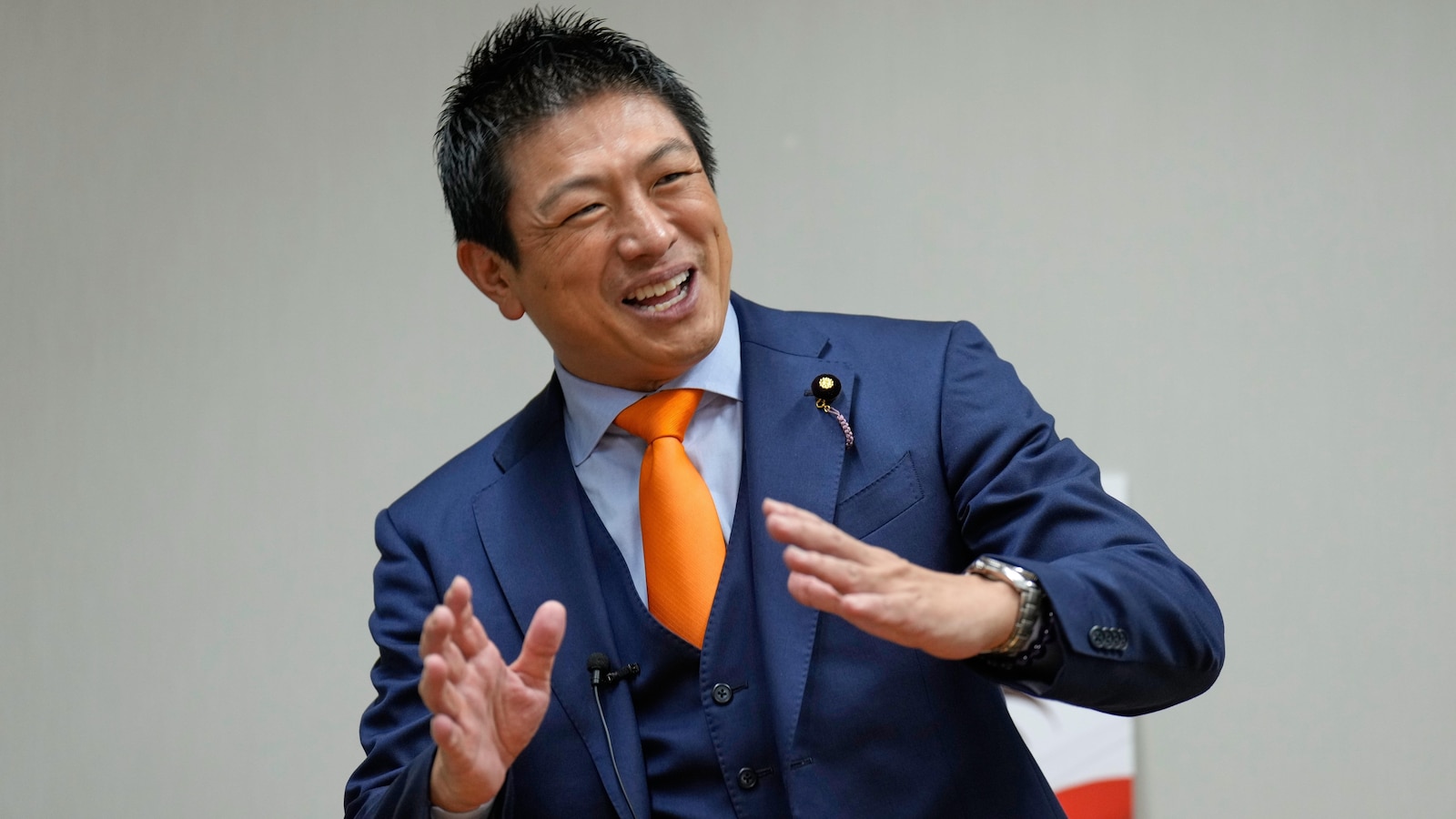Outside a train station near Tokyo, hundreds of people cheer as Sohei Kamiya, head of the surging nationalist party Sanseito, criticizes Japan’s rapidly growing foreign population.
As opponents, separated by uniformed police and bodyguards, accuse him of racism, Kamiya shouts back, saying he is only talking common sense.
Sanseito, while still a minor party, made big gains in July’s parliamentary election, and Kamiya’s “Japanese First” platform of anti-globalism, anti-immigration and anti-liberalism is gaining broader traction ahead of a ruling party vote Saturday that will choose the likely next prime minister.



There’s the quantatitve thing of currency, but also simply the reality that people actually have to work to provide the things the retired people need. In this case the money issue is modeling a more intrinsic issue. With fewer young workers the retirement age has to go up to maintain a viable ratio of non-workers to workers. Yes technology and such can also help things for the better, but roughly that’s the state of things.
It’s good that people consider the reality behind the fiction that money is. Money is literally paper, it’s made-up literature. Reality, however, is real.
Yes, as people are disabled through aging, they eventually stop “producing” more than is necessary to sustain them. People with excess “production” have to transfer it to them. This can take various forms, but both a “self-sustaining pension” and a U.S. style “social security fund” use money as this method of transfer; the former is a bit more abstracted since interest / market gains (rather than direct contribution) are used, but it’s still the same flow. Making disabled care a cultural norm is even more direct, but also has a lot of coordination problems, and the people with excess production are often geographically (and socially) separated from the people with production deficits.
Of course, the ideal is not just about discontinuing labor participation due to disability, but because we actually want some time insofar as we can afford it.
A mark of, ideally, a bit of ‘overproduction’ is that we can work fewer hours and/or fewer years. If our ambitions and capabilities allow us to work 32 hour workweeks for a decade and then nope on out on retirement in our 30s for the rest of our lives, that would be a pretty good economic state to be in. A fantasy in practical terms, but a concept to keep in mind as a hypothetical if we ever do manage amazing ‘productivity’ without enough ‘ambition’ to consume it all.
I think that if that ever comes, it will be because “retirement” is/becomes a time when you still have excess production but you aren’t maximizing production, or that instead of 32hr/wk for 10 years, we do 8hr/wk for 40 years, with 3-5 years in there for pivot+retrain or relax+restore+refocus.
I doubt I’ll live to see it, tho.
Another fair point, that we could be targeting a more distributed “retirement” instead of taking it all at the end. How we model it so that we are comfortable with the concept wild be interesting… when and if we ever get there